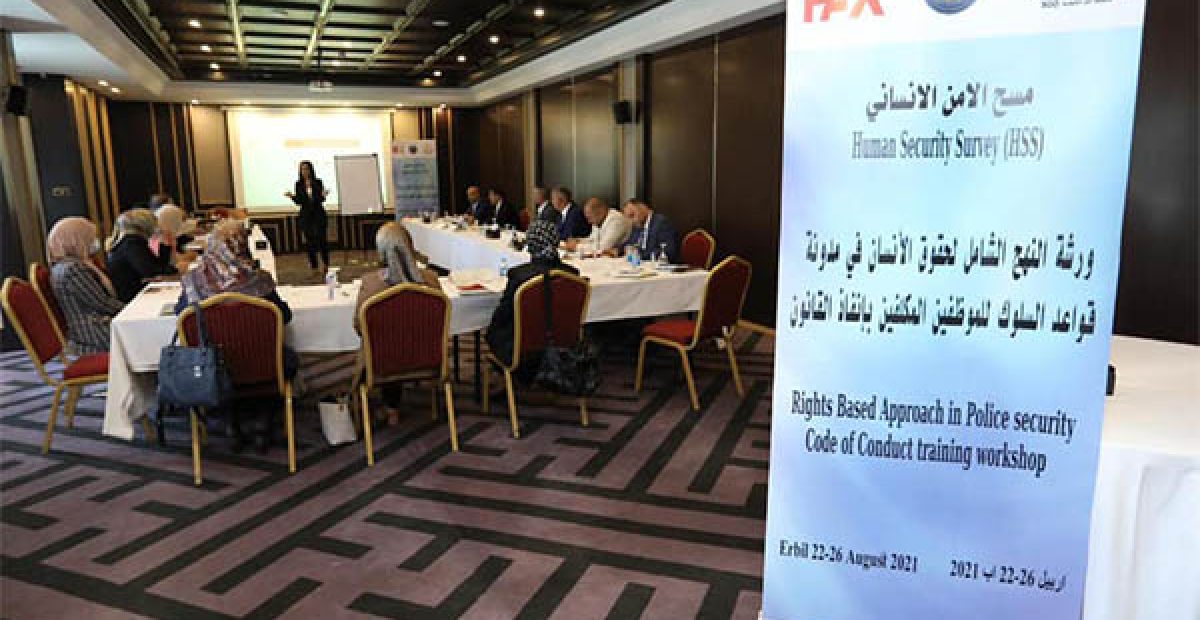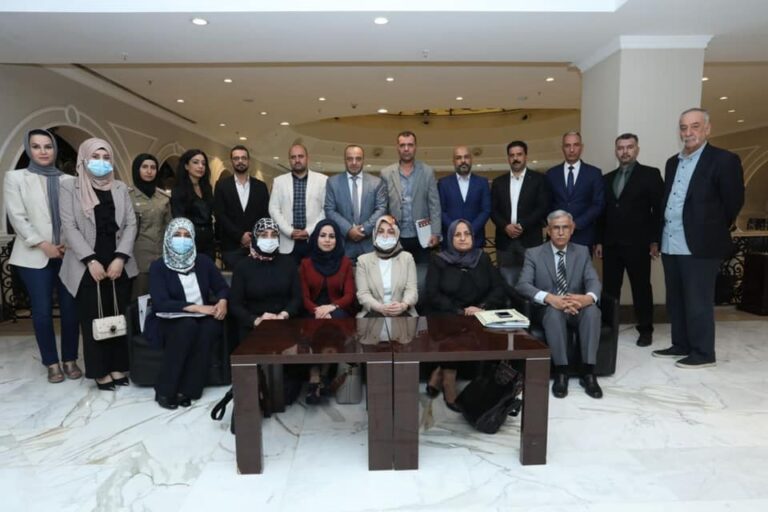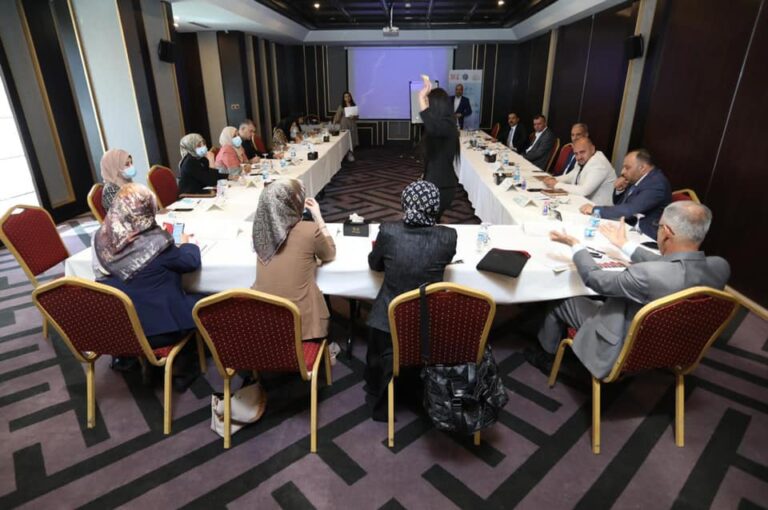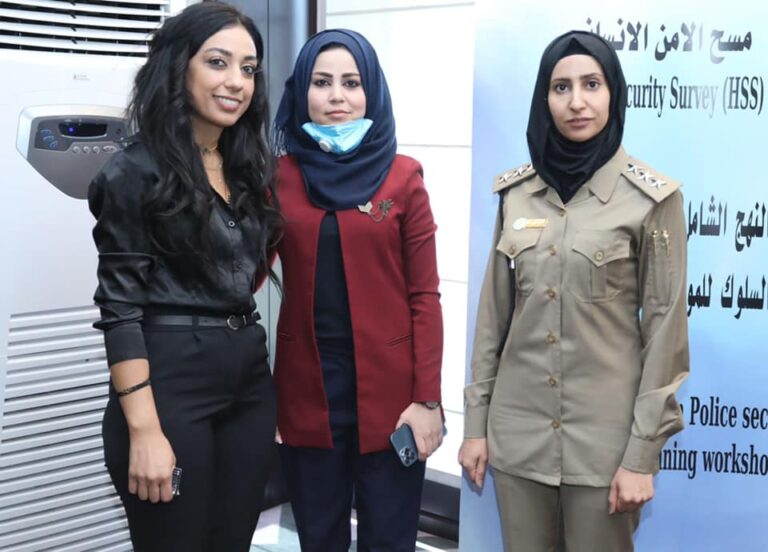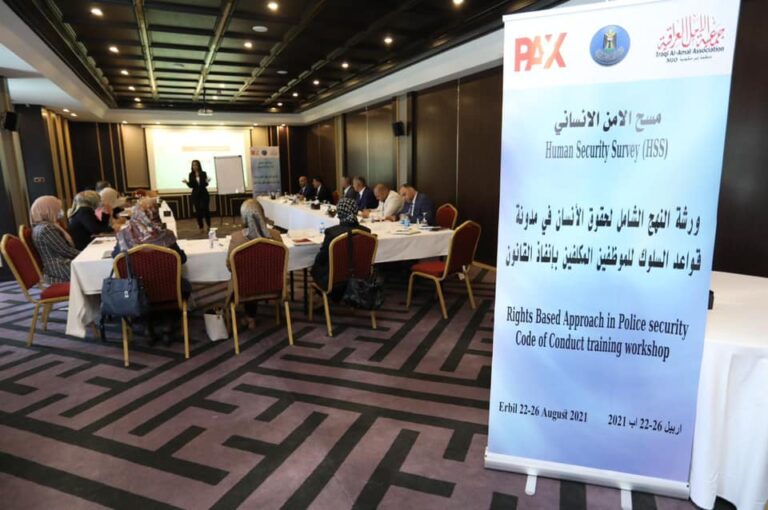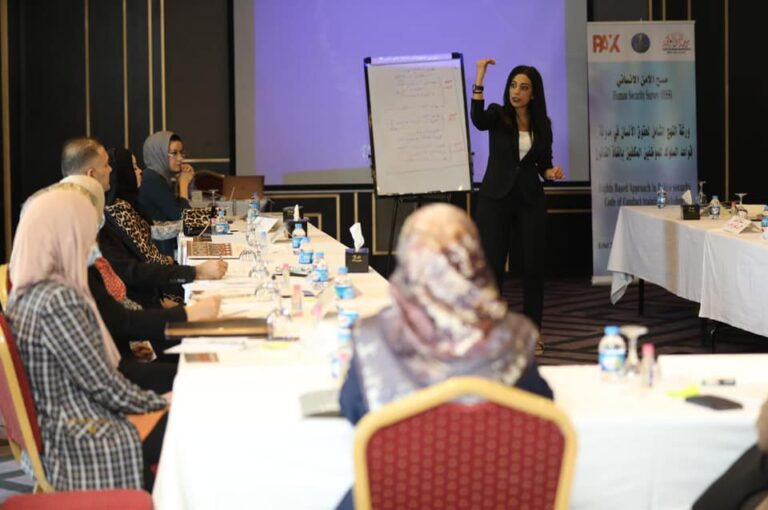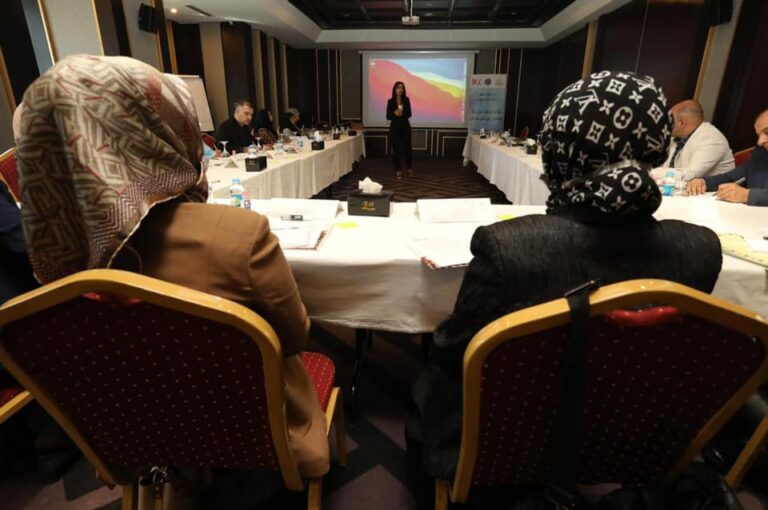I am very proud to be facilitating the executive meeting that aimed to mainstream gender perspectives in the Code of conduct for the Internal Security Forces in Iraq.
The Executive meeting centered on the Rights-based approach in the Conduct of Law Enforcement Officials. The meeting discussed the necessary formulations needed to reform the security system in line with international standards For human rights and gender mainstreaming in the code of conduct for internal security forces in Iraq. It was organized by AlAmal Iraqi Organization in Erbil International Hotel from 22-26-August.2021 and facilitated by trainer Dr. Khouloud AlKhatib. The meeting took place with the participation of the Iraqi Women Empowerment Department in the General Secretariat of the Council of Ministers, the Ministry of Interior, the Supreme Judicial Council, and the Law Enforcement Integrity Commission in Erbil.
Ensuring gender-sensitive policing throughout the work of security officers is an operational necessity to professionally address the security needs of women, men, girls, and boys. In doing so, security forces will reflect the communities’ needs which they serve with an adequate representation of female police forces.
The training was based on existing good practices gathered from proven experiences from many different countries. By standardising these practices, security forces ensure lessons are not only identified but also translated into future practice
The meeting emphasized the complementary relationship between security and human rights and focused on mechanisms for developing a code of conduct and making it more appropriate to deal with gender, in the light of international human rights law and United Nations human rights standards.
All participants agreed to add a special clause to “ Women and Criminal Justice” that guarantees decent humane treatment of women in accordance with the relevant national legal texts (Criminal Procedure Law No. 23 of 1971 amended, Police Officer Duties in Combating Crime Law No. 76 of 1980 and related regulations Relevancy as the Code of Conduct for Military and Internal Security Forces No. 1 of 2018), and in accordance with international instruments (such as the Charter of the United Nations, the Universal Declaration of Human Rights, the United Nations Rules for the Treatment of Female Prisoners and Non- custodial Measures for Women Offenders (Bangkok Rules) and the United Nations Standard Minimum Rules for the Treatment of Prisoners (Rules). Mandela) as well as resolutions of the Security Council, the United Nations General Assembly and the Office of the High Commissioner for Human Rights).
- Ensuring all rights of women and girls and taking into account their conditions when executing recruitment, arrest, investigation and search orders, accompanied by a female force whenever possible, and respecting their dignity based on the provisions of the amended Code of Criminal Procedure No. (23) of 1971.
- Refrain from all practices of discrimination and forms of gender-based violence GBV against women and girls, and prohibiting unauthorized photography during the criminal justice process.
- Expedite the presentation of accused women and girls before the investigative judge in accordance with the law and within a period not exceeding 24 hours, while ensuring appropriate places for arrest and providing their health and personal needs.
- Ensuring prompt action and confidentiality of investigations into crimes of domestic and sexual violence, and the need for specialized female cadres to investigate them.
- Commitment to international conventions and treaties and Security Council resolutions to protect women and girls during the criminal justice process.
- The Internal Security Forces, in the process of policy-making and decision-making, seek an institutional policy that is responsive to gender, ensuring that women and girls have equal access to security and justice services.

